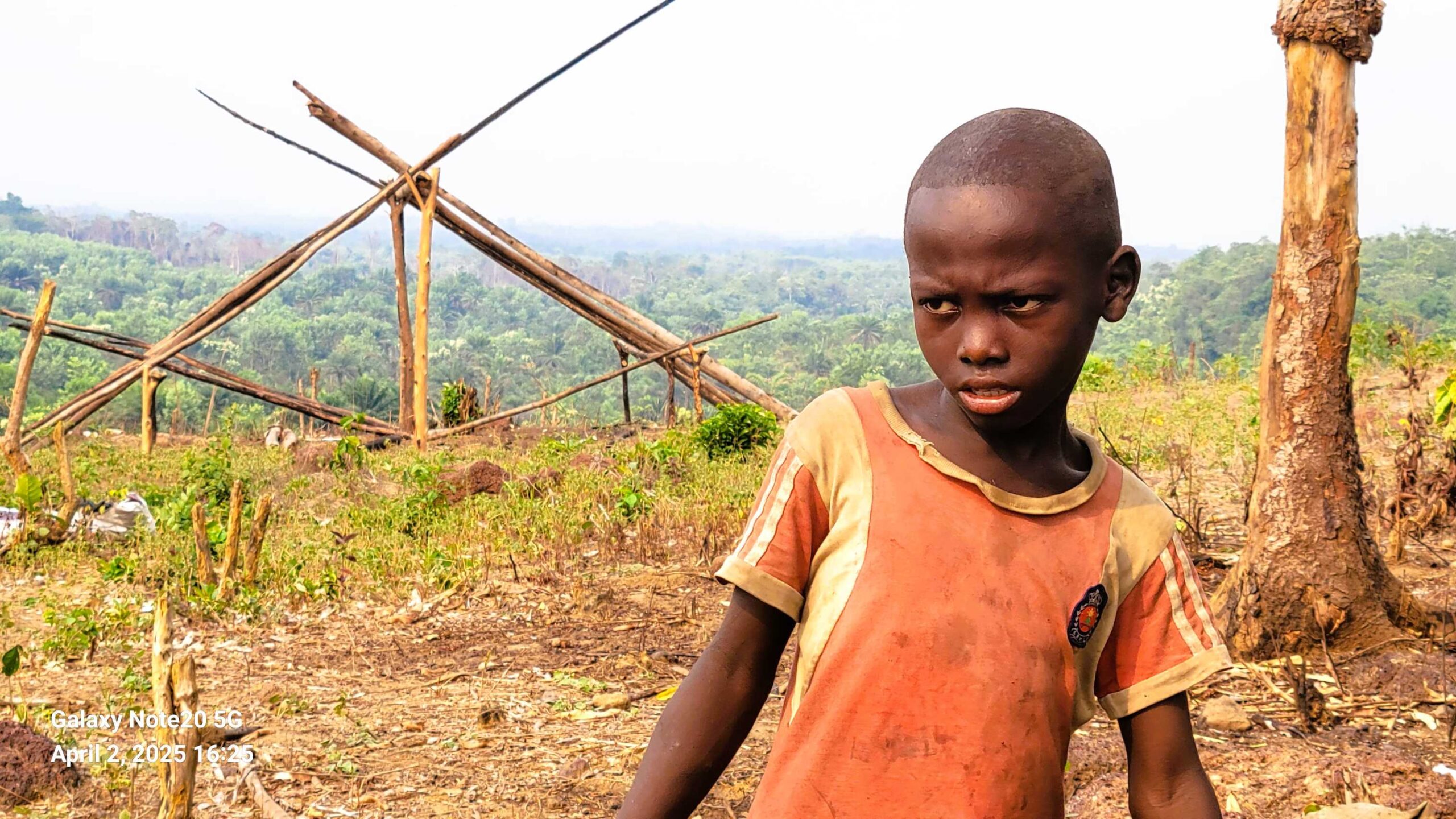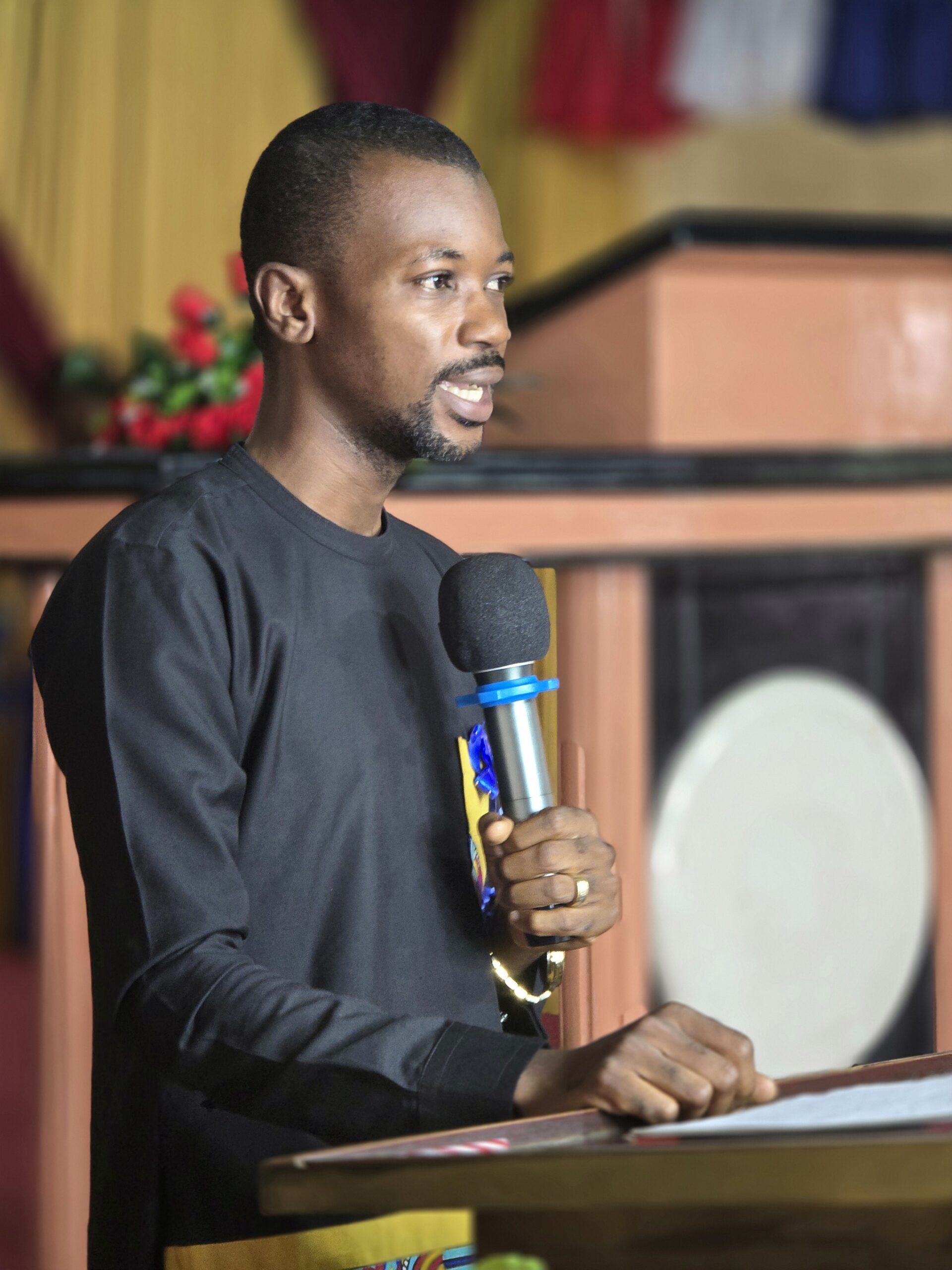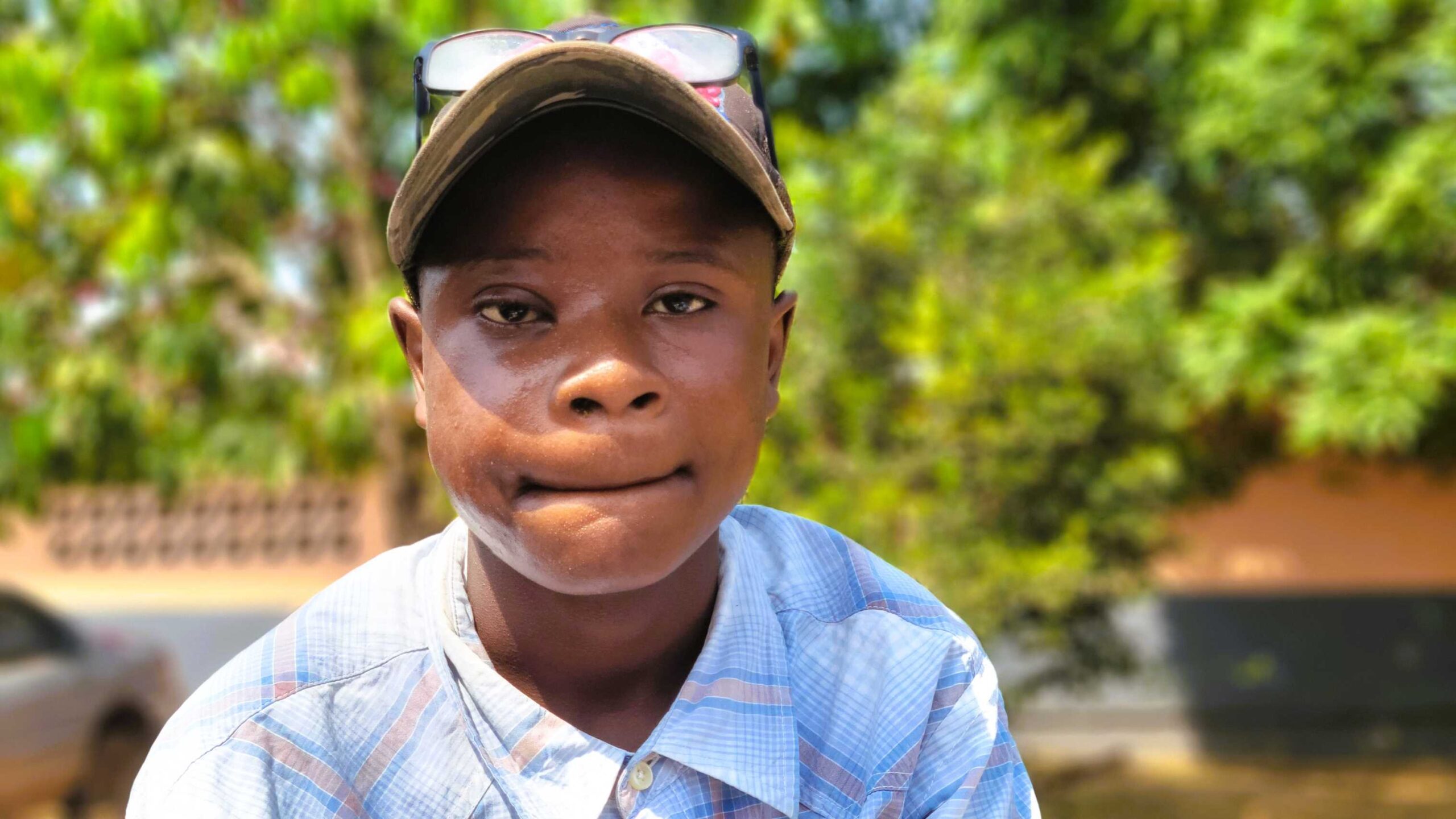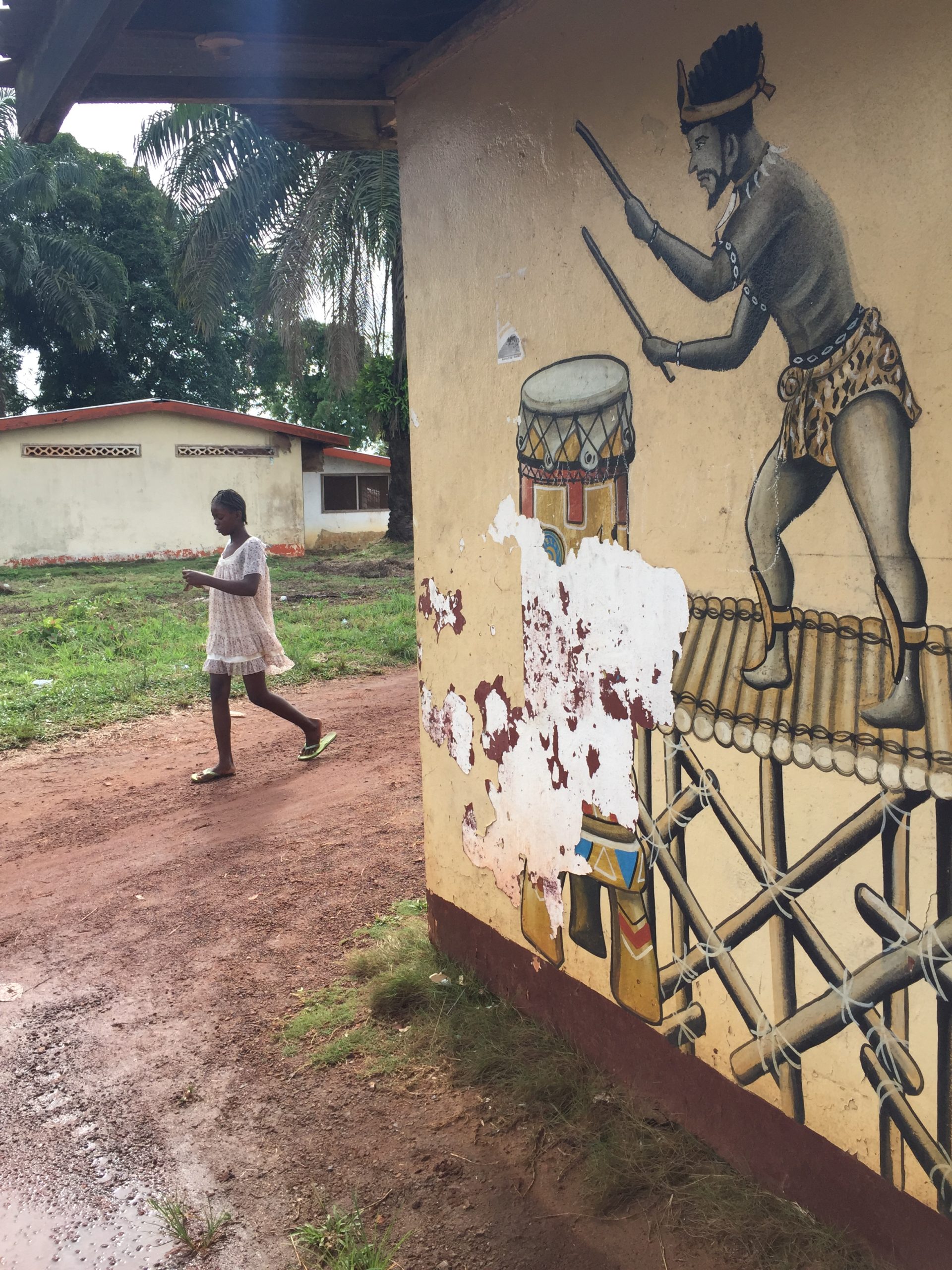Liberia: Souls winning rural Christian radio faces hardship; sends out an ‘SOS’ call
A Special News Feature
By James Kokulo Fasuekoi; Editor/Publisher
A small rural Christian radio station located 60 miles southeast of Liberia’s capital in the coastal city of Buchanan, Grand Bassa, is in serious logistical trouble, a situation hampering its daily operations for over a year now.
Hardship at the station came as a result of acute shortage of adverts from the radio’s listeners and supporters in recent years-that has been compounded by the nation’s present financial crunch, said Rev. Henry Goah, a senior language newscaster at Radio Dukpa.
In addition, the station’s worn out generator needs to be replaced.
Meanwhile, the radio has been forced to cut-down its air-time while maintaining a small staff in order to stay functional.
According to Rev. Goah, essential items badly needed include a new generator to help power the facility both in the day and at night which would help ward off intruders in the crime-ridden city.
He is therefore asking people of the Christian Faith who wish to advance the works of God’s Kingdom to kindly step in and make some donation for the purchase of a new generator for the company.
Rev. Goah, who spoke with Global Ekklesia from South Carolina, where he’s currently visiting his family, also serves as pastor in Worldwide Mission Church of Liberia which owns and operates the radio.
He previously worked eleven years as Bassa Language newscaster for ELWA (Eternal love Winning Africa), the first Christian radio station built by American missionaries on the continent of Africa, and Liberia, in the early 1950s

‘Christian Radio-critical’
Dukpa is one of two private community radio stations-the only Christian radio-in the entire Grand Bassa, with a population of more than 224,000 people (2008). A third radio called “Radio Gbenzon” is owned and operated by the GOL.
Dukpa was established 2005 and has since remained critical of past and succeeding regimes-spreading the Gospel of Jesus Christ, while also preaching against national corruption and the misuse of political power by regimes’ officials amid a generalized atmosphere permeated with wickedness.
Amidst the prevailing atmosphere, many in the coastal region have come to view Dukpa as the “voice of the people” for its kindness by devoting an hour-long free airtime weekly to community issues, letting a nurse provide locals with health education on maternity and hygiene.
Rev. Goah told Global Ekklesia that Dukpa often offered platforms such as Live Radio Talk Show letting listeners call-in and speak their views on a variety of subjects: from disadvantaged school kids tooting their own chairs to school, to how communities in the area could work together and maintain safety in their surroundings.
Dukpa’s public service journalism, said Min. Goah, includes a free-airtime allotted to both opposition and government politicians for debating vital national issues, especially during political campaigns seasons.
However, the radio, he said, had to tone it down, place a freeze on the entire exercise all because of unnecessary use of profanity by rivals during previous debates.
Power rationing & Help!
The unpleasant financial condition of the station has forced Dukpa to ration power, in addition to reducing its airtime almost by half due to the present predicament.
“The present generator is being overused. We use it in the morning, afternoon and night…we need one more to give the other rest,” Rev. Goah told this writer in 2018, during a visit to the station in Buchanan. The trip was part of efforts by this web magazine to assess media working conditions in the country.
At the time, Radio Dukpa operated on a faulty transmitter along with a single generator that seemed pretty much worn out as a result of being overused.
That generator was replaced by a new one purchased almost two years ago by a community youths group known in the region for its generosity, styled “Friends of Radio Dukpa.”
When word of the radio’s appalling condition spread, a Good Samaritan (anonymous) in a Washington D.C. church purchased a median radio transmitter for the station in 2020. Rev. Dr Abbas Karnga, Worldwide Mission Church’s lead pastor who was on a visit to the U.S. delivered it to Dukpa.
Although the transmitter issue has been resolved at least for now, the station isn’t yet out of the woods in that Dukpa needs a second generator to reduce pressure on the current machine in order to avoid shutdown.

Winning souls for Christ
Since its inception 2005, the station has converted countless atheists and idolaters to Christ in this region that is homed to multiple ethnic groups, especially Bassa, many of whom initially worshipped idols, just as the rest of the population in other parts of Liberia.
Dukpa, Rev. Goah, observed, presently serves an estimated 30,000 people in the Grand Bassa area and beyond: these include Margibi, Bong and parts of Montserrado County, including Monrovia (named after U.S. Pres. James Monroe).
Dukpa’s staffers are said to have received feedback regarding the radio’s network from listeners even as far as the Republic of Guinea, particularly, along the Yekepa border area, Liberia’s Iron Range Country.
What’s “Dukpa” meaning?
Bassa traditional legend teaches that Dukpa was a special kind of musical drum used by the ethnic group in ancient days to call mass gatherings either for a joyous feast, or for war!
Global Ekklesia learned that Bassa instrumentalists in those days were trained to use a certain distinctive drumbeat to convey news of a danger such as a pending war.
Similarly, it has been confirmed that there also existed a special tone for celebration.
Use of the name, “Dukpa” seems very popular among people of Bassa origin, including intellectuals, so much so that some even name their businesses “Dukpa.”
Renowned Liberian television broadcast journalist, Garswa Yamanto, for instance, named his newspaper “Dukpa” in 1989-90 at the start of Liberia’s civil war.

Sirleaf-Weah Govts ‘refused’ to pay ads
Politics aside, the fact remains that Radio Dukpa, Radio Magic, and Radio Gbenzon, all contribute meaningfully not only to Grand Bassa, but the overall national development of Liberia.
Yet, the Weah’s Administration from reports gathered, seems to practice discrimination against certain private media entity, including “Dukpa,” refusing to support them with adverts perhaps because of the station’s critical stance on societal vices.
But more than that the station has alleged that whenever officials of the GOL turn in adverts for broadcast, they never return to pay after the job is done.
Min. Goah also observed that the regime of Ellen Johnson Sirleaf had been notorious for such ugly practice.
For Rev. Goah, he still does not understand why would a regime or its bureaus, under a democratic form of government, contract a private station to do certain work such as campaign-community outreach programs but never go back to pay for them.
How does the GOL expect the business to survive under such conditions, he wondered.
Nevertheless, pastors and deacons he maintained, pay the normal fair amount whenever they submit announcements or adverts to be aired for upcoming churchs’ conventions and rallies.
Dukpa reporters had stayed mute on their relationship with Weah’s Governments, plus concession companies in Grand Bassa which they said, aren’t forthcoming with adverts. None commented on the issue during our two separate trips to the station in March of 2018, and May 2021, respectively.
Asked why couldn’t Dukpa go after those officials for payment-the right thing to do?
“This is what we met the others [stations] doing when we came on air. So we had to follow too, in order to avoid a quarrel with the government.”
MOI/MICAT Response
When this writer put the matter before Liberia’s Information Minister, Mr. Ledgehood Rennie, he neither confirmed nor denied Rev. Goah’s allegation.
Minister Rennie however observed that Radio Dukap itself had some responsibility in this matter “to go after those who used its services without paying for them.”
He spoke with Global Ekklesia in an interview a few weeks ago while in the state of New Jersey where he had attended an annual ALJA convention.
Min. Rennie, himself a veteran journalist who previously managed the national Catholic Radio station in Liberia, wondered how would the government or any of its entities use airtime from a private media group and not pay when in fact the same government pays for “ads at its own ELBC.”
He maintained that if the agriculture ministry, for example, gives Radio Dukpa ads for publicity, that ministry should pay for it. And the same goes for government officials who may use the station for campaign purposes, he said.
Media proliferation & free press
The government of ex-president Ellen Sirleaf often boasted of the proliferation of media institutions in Liberia during its two consecutive terms.
For that regime, such “proliferation” serves as an evidence to true democracy and a “free press” in the country.
“Since 2006, the media landscape of Liberia has exploded with more than 30 newspapers and online services, 19 radio stations and 45 community radio stations which operate across the rural areas. All these are independently owned and operated,” stated an online MICAT statement, under the signature of Lewis Brown, II.
The GOL also boasted as being “the second only country on the continent to accede to the Table Mountain Declaration.”
Current President Weah’s government, like the Sirleaf’s regime, has begun to make similar claims.
The accession that media proliferation translates into a free press is untrue and has been refuted by scores of media analysts worldwide. The 2013 jailing of FrontPage Africa’s editor over a trivial matter in fact serves as proof of the Sirleaf regime’s intolerance of a free press. See “Liberia: In Chris Toe Vs. Rodney Sieh – Daily Observer’s Position Raises Journalistic Ethical Questions”(JKF, Sept. 2013).
An editor for a leading private paper told this writer in 2018 that agents from the Finance Ministry had frequented his office and demanded the paper to pay a few hundred bucks it owed in taxes although the GOL owed the paper a huge sum of U.S. Dollars in adverts cost.
About two years ago, agents within Weah’s government succeeded in setting up a surrogate of the Liberian Inquirer, the first post-war paper which they styled: the “Independent Inquirer”.
The “Independent Inquirer” also succeeded in pulling over many of Inquirer’s good reporters, reportedly offering them an attractive salary but its “show off” according to a local editor interviewed last week was short lived.
Such practice, no doubt, amounts to a draconian style of press muzzling.
Editor’s note: Any person wanting to make a donation to Radio Dukpa can contact Global Ekklesia via editor@globalekklesia.com-we will connect you with either Rev. Henry Goah or the station in Buchanan, Grand Bassa County. Thanks











